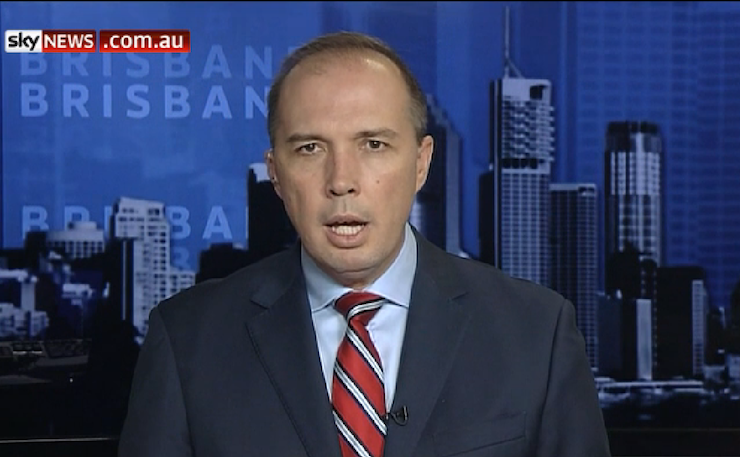Last week’s comments by Peter Dutton that ‘illiterate’ refugees will take Australian jobs misses the point at several levels, writes Catherine Kovesi.
Unsurprisingly, the electoral debate has brought the handful of tragic asylum seekers who live forcibly at our peripheries to our emotional centre stage once more. This time the argument is based on their possible illiteracy and job taking aspirations.
The response by some has been immediately to show the number of highly literate former asylum seekers who are now active and productive participants in Australian society. Others have shown instead how their illiterate parents became productive members of Australian society.
But does this advance the nature of the debate? Are literacy skills or the lack thereof what we should be basing the argument around in the first place?
My father and his brother filled out asylum seeker application forms to come to Australia in 1950. They were 19 and 23 respectively. Both were men of the mind. Highly literate, politically engaged young intellectuals. Fluent in Hungarian, and German, passable in French, and well versed in Latin. But with no English.
My father had studied Philosophy at Budapest University, and then, as a refugee in Austria in 1949, at Salzburg University. My uncle had studied medicine at the same institutions.
However in 1950, Australia was not interested in refugees’ literacy skills. In fact the very opposite. The country was only accepting refugees who had demonstrable practical skills.
My father had only just learnt to drive on the steep alpine slopes of the Tyrol, but he was accepted into Australia on the pretence that he was a truck driver, and my uncle that he was a shoemaker.
Anxiously, as they sailed towards Australia on the good ship Skargum with many other middle European refugees, my uncle studied an old shoemakers’ manual that he had hurriedly bought prior to departure, in case he arrived in Fremantle, Western Australia, to find materials to make a shoe waiting for him at Customs, in order to demonstrate his shoemaking expertise.

Both did indeed take on manual jobs when they arrived. Whilst living in the Northam refugee detention centre, my father worked variously as a gardener (planting out the grounds of the University of Western Australia), as a kiosk salesman on Cottesloe Beach, and as an orderly in a tuberculosis sanatorium in Perth. It was in that sanatorium that he spied some philosophy books on the table of one of the patients.
That patient, Professor Selwyn Grave, encouraged my father, who spoke little English, to come and study at the University of Western Australia – in the glory days of free undergraduate education. My father and my uncle did so.
Within five years my father had a scholarship to Oxford University. My uncle went on to Cambridge to study English Literature (although he always lamented that reading Shakespeare in the original was a disappointment).
But both returned to the country that had offered them asylum. Both went on to academic careers at the University of Western Australia – my uncle teaching English literature with a special focus on Shakespeare, and my father teaching Philosophy to generations of students.
Both are remembered with great fondness.
Sadly both are now dead.
But what they both offered Australia was not their literacy or otherwise. They offered quite simply all that we in turn can hope to offer desperate people who recognise something of good in the traditions of our island sanctuary – their humanity.
Can the debate please be removed from questions of literacy, and return to common questions of our shared humanity?
Donate To New Matilda
New Matilda is a small, independent media outlet. We survive through reader contributions, and never losing a lawsuit. If you got something from this article, giving something back helps us to continue speaking truth to power. Every little bit counts.





